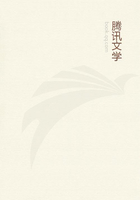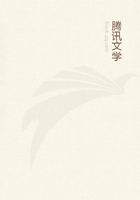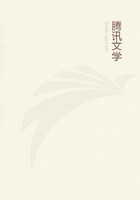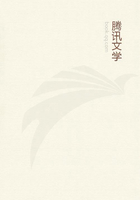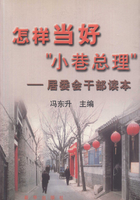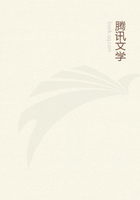But we believe, or, more accurately speaking, we feel, that it is otherwise in the universe of mind. Whoever attentively observes the phenomena of thinking and sentient beings, will be convinced, that men and animals are under the influence of motives, that we are subject to the predominance of the passions, of love and hatred, of desire and aversion, of sorrow and joy, and that the elections we make are regulated by impressions supplied to us by these passions. But we are fully penetrated with the notion, that mind is an arbiter, that it sits on its throne, and decides, as an absolute prince, this may or that; in short, that, while inanimate nature proceeds passively in an eternal chain of cause and effect, mind is endowed with an initiating power, and forms its determinations by an inherent and indefeasible prerogative.
Hence arises the idea of contingency relative to the acts of living and sentient beings, and the opinion that, while, in the universe of matter, every thing proceeds in regular course, and nothing has happened or can happen, otherwise than as it actually has been or will be, in the determinations and acts of living beings each occurrence may be or not be, and waits the mastery of mind to decide whether the event shall be one way or the other, both issues being equally possible till that decision has been made.
Thus, as was said in the beginning, we have demonstration, all the powers of our reasoning faculty, on one side, and the feeling, of our minds, an inward persuasion of which with all our efforts we can never divest ourselves, on the other. This phenomenon in the history of every human creature, had aptly enough been denominated, the "delusive sense of liberty[27]."
[27] The first writer, by whom this proposition was distinctly enunciated, seems to have been Lord Kaimes, in his Essays on the Principles of Morality and Natural Religion, published in 1751.
But this ingenious author was afterwards frightened with the boldness of his own conclusions, and in the subsequent editions of his work endeavoured ineffectually to explain away what he had said.
And, though the philosopher in his closet will for the most part fully assent to the doctrine of the necessity of human actions, yet this indestructible feeling of liberty, which accompanies us from the cradle to the grave, is entitled to our serious attention, and has never obtained that consideration from the speculative part of mankind, which must by no means be withheld, if we would properly enter into the mysteries of our nature. The necessarian has paid it very imperfect attention to the impulses which form the character of man, if he omits this chapter in the history of mind, while on the other hand the advocate of free will, if he would follow up his doctrine rigorously into all its consequences, would render all speculations on human character and conduct superfluous, put an end to the system of persuasion, admonition, remonstrance, menace, punishment and reward, annihilate the very essence of civil government, and bring to a close all distinction between the sane person and the maniac.
With the disciples of the latter of these doctrines I am by no means specially concerned. I am fully persuaded, as far as the powers of my understanding can carry me, that the phenomena of mind are governed by laws altogether as inevitable as the phenomena of matter, and that the decisions of our will are always in obedience to the impulse of the strongest motive.
The consequences of the principle implanted in our nature, by which men of every creed, when they descend into the scene of busy life, pronounce themselves and their fellow-mortals to be free agents, are sufficiently memorable.
From hence there springs what we call conscience in man, and a sense of praise or blame due to ourselves and others for the actions we perform.
How poor, listless and unenergetic would all our performances be, but for this sentiment! It is in vain that I should talk to myself or others, of the necessity of human actions, of the connection between cause and effect, that all industry, study and mental discipline will turn to account, and this with infinitely more security on the principle of necessity, than on the opposite doctrine, every thing I did would be without a soul. I should still say, Whatever I may do, whether it be right or wrong, I cannot help it; wherefore then should I trouble the master-spirit within me? It is either the calm feeling of self-approbation, or the more animated swell of the soul, the quick beatings of the pulse, the enlargement of the heart, the glory sparkling in the eye, and the blood flushing into the cheek, that sustains me in all my labours. This turns the man into what we conceive of a God, arms him with prowess, gives him a more than human courage, and inspires him with a resolution and perseverance that nothing can subdue.
In the same manner the love or hatred, affection or alienation, we entertain for our fellow-men, is mainly referable for its foundation to the "delusive sense of liberty." "We approve of a sharp knife rather than a blunt one, because its capacity is greater. We approve of its being employed in carving food, rather than in maiming men or other animals, because that application of its capacity is preferable. But all approbation or preference is relative to utility or general good. A knife is as capable as a man, of being employed in purposes of utility; and the one is no more free than the other as to its employment.
The mode in which a knife is made subservient to these purposes, is by material impulse. The mode in which a man is made subservient, is by inducement and persuasion. But both are equally the affair of necessity[28]." These are the sentiments dictated to us by the doctrine of the necessity of human actions.
[28] Political Justice, Book IV, Chap. VIII.

